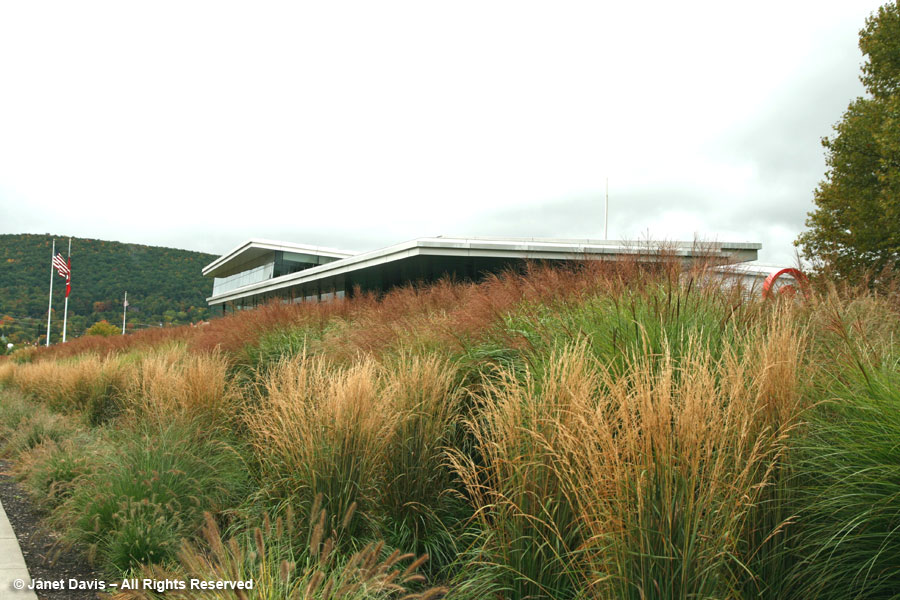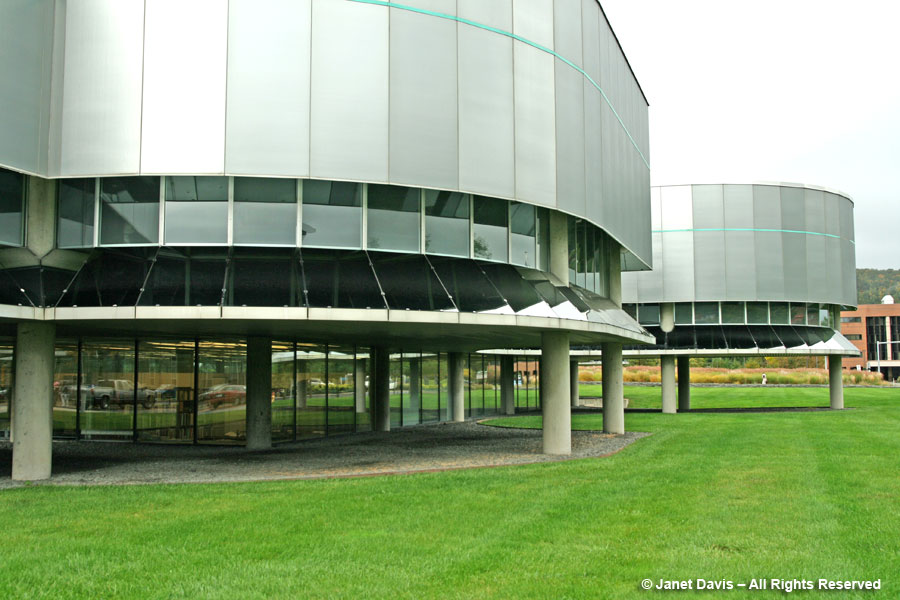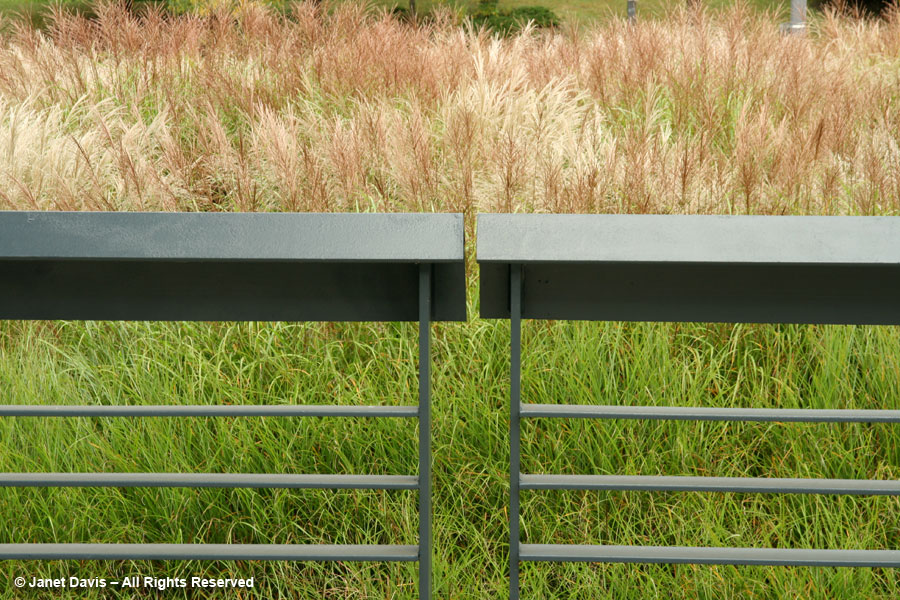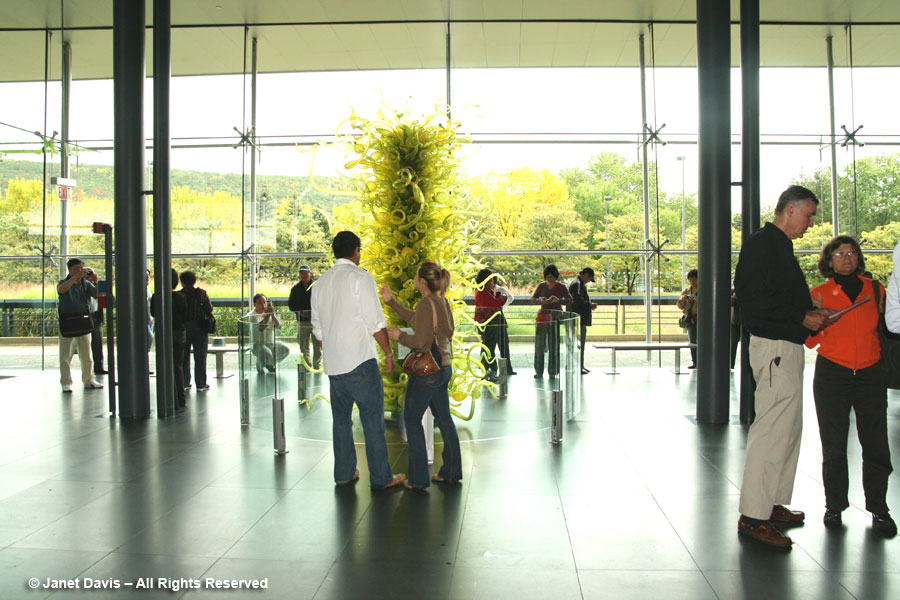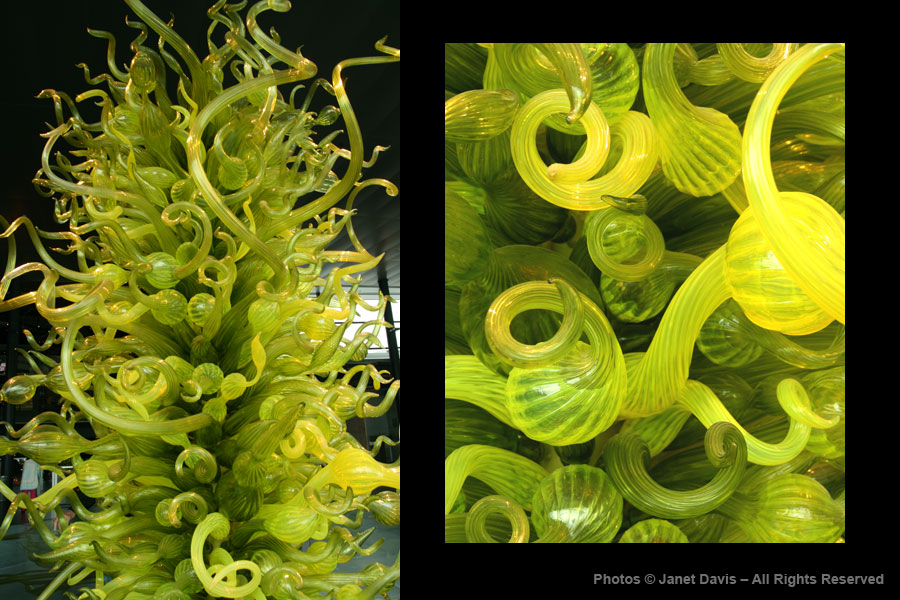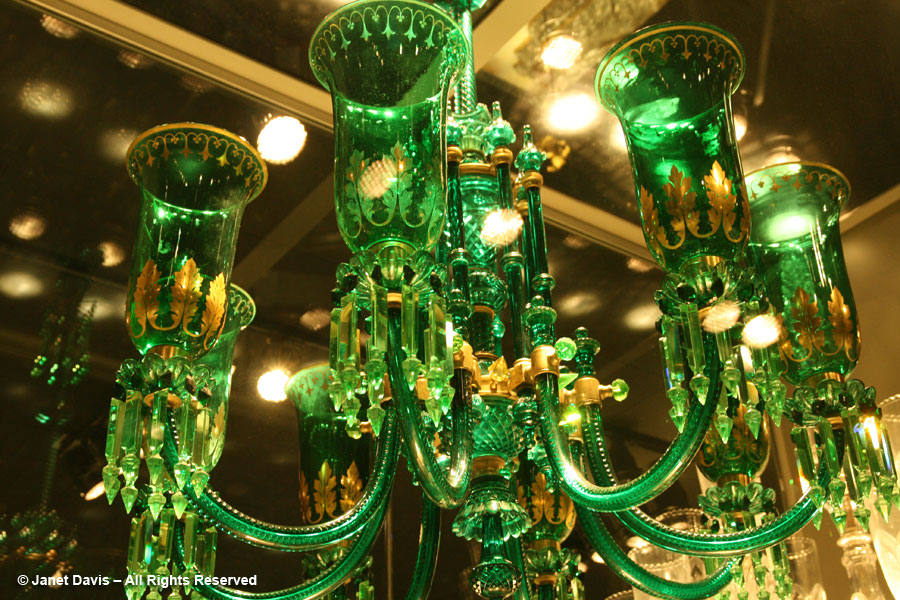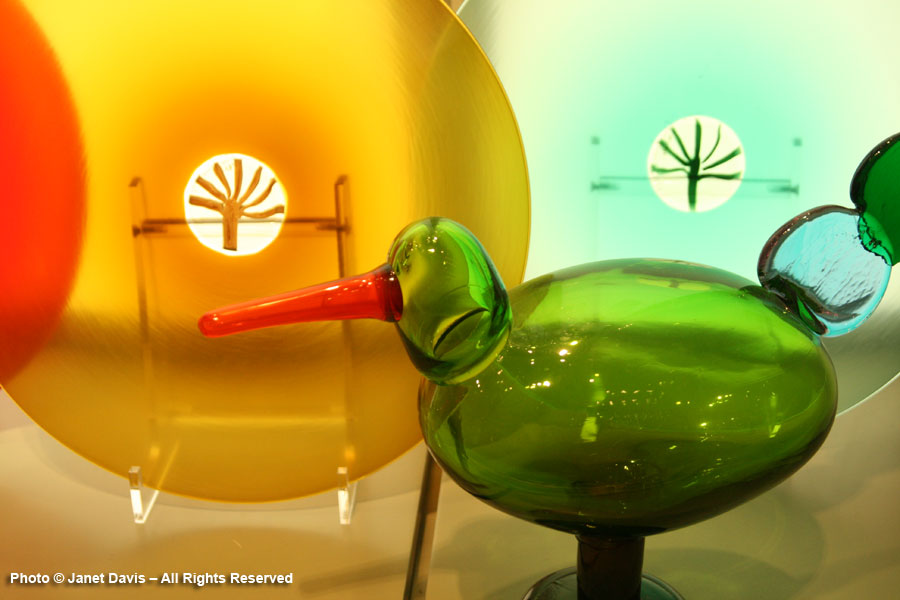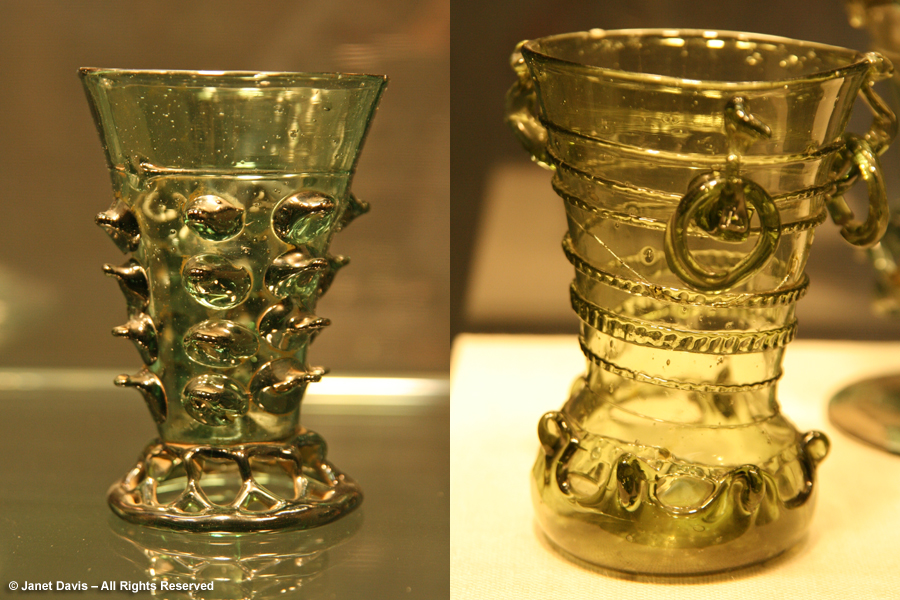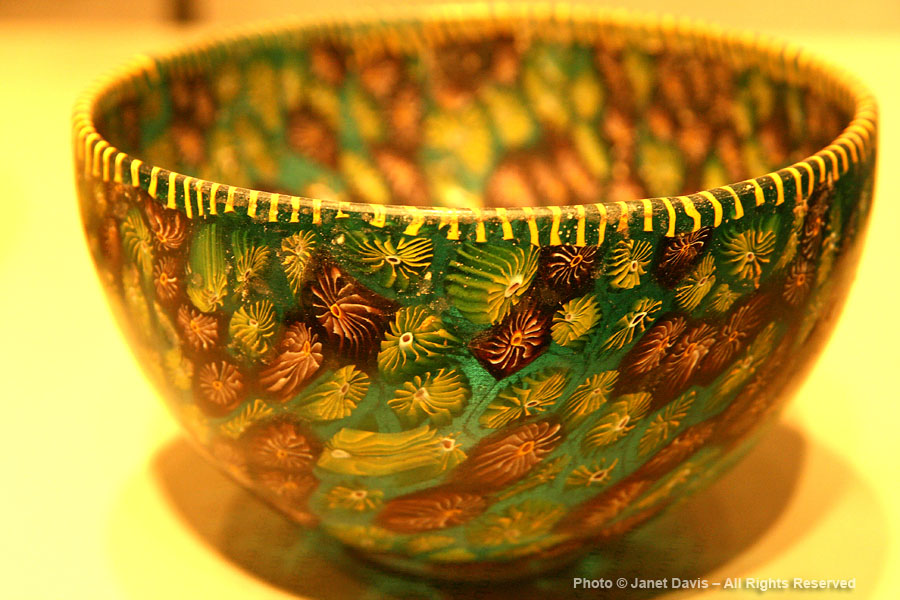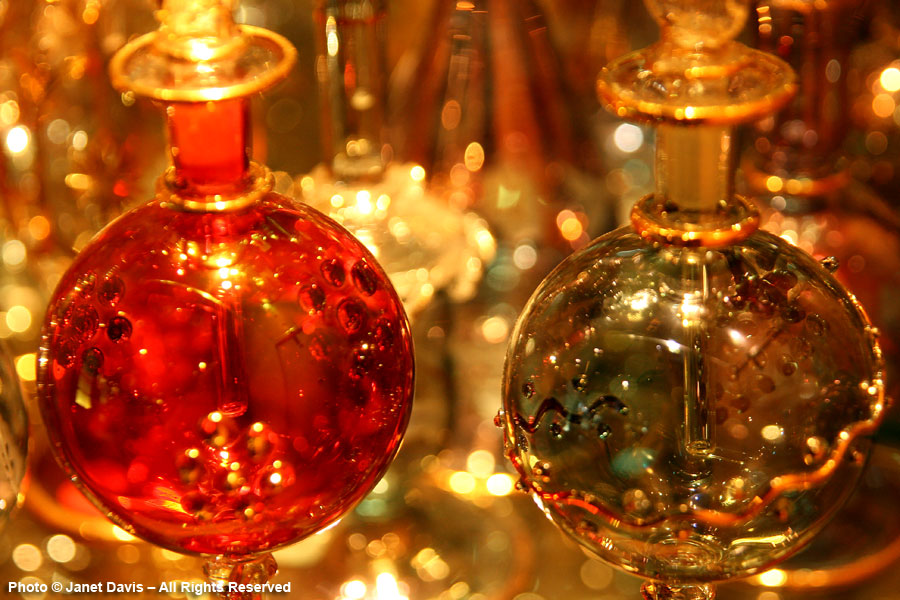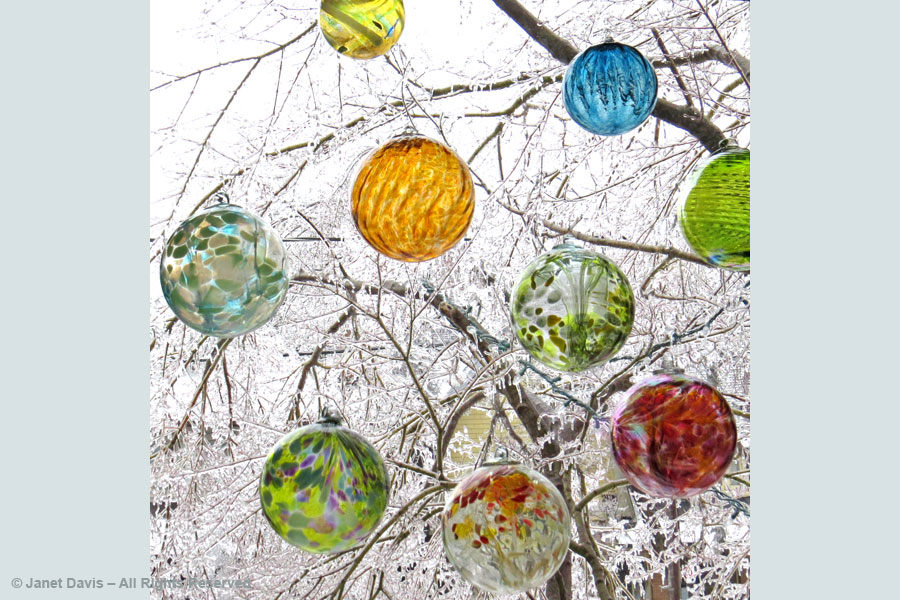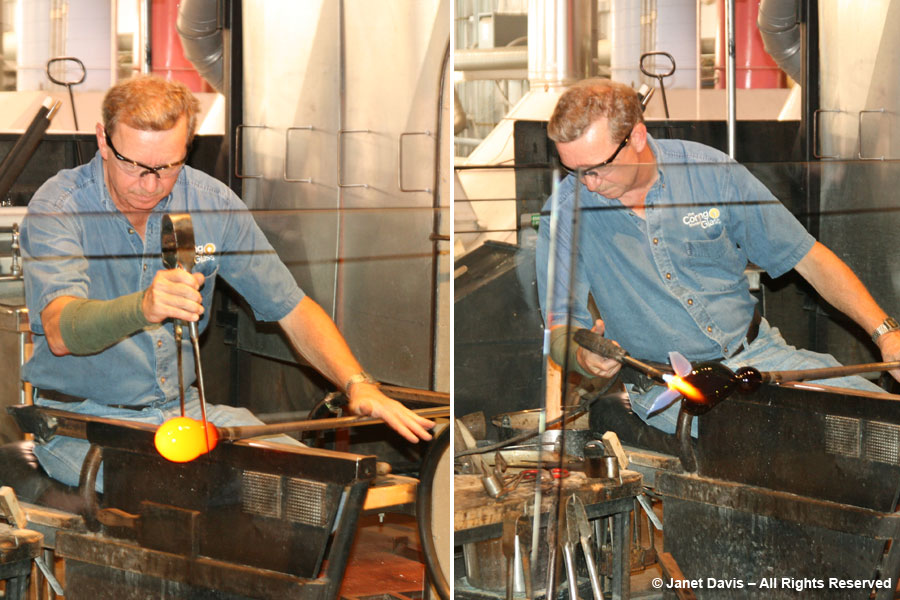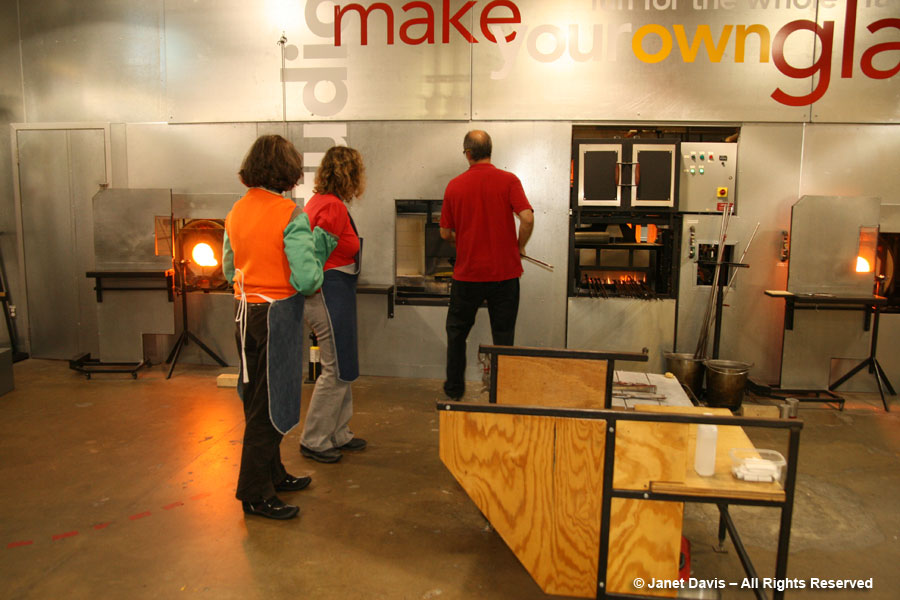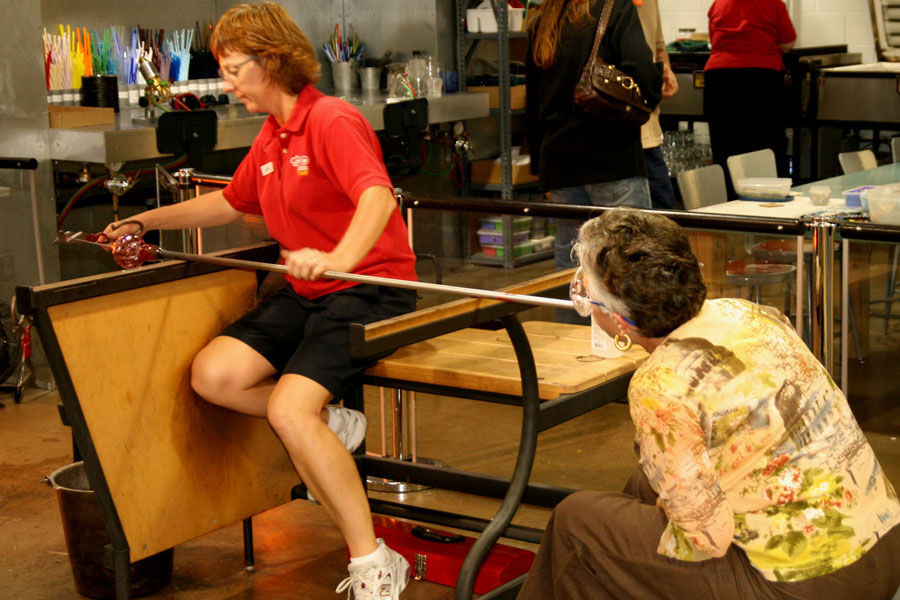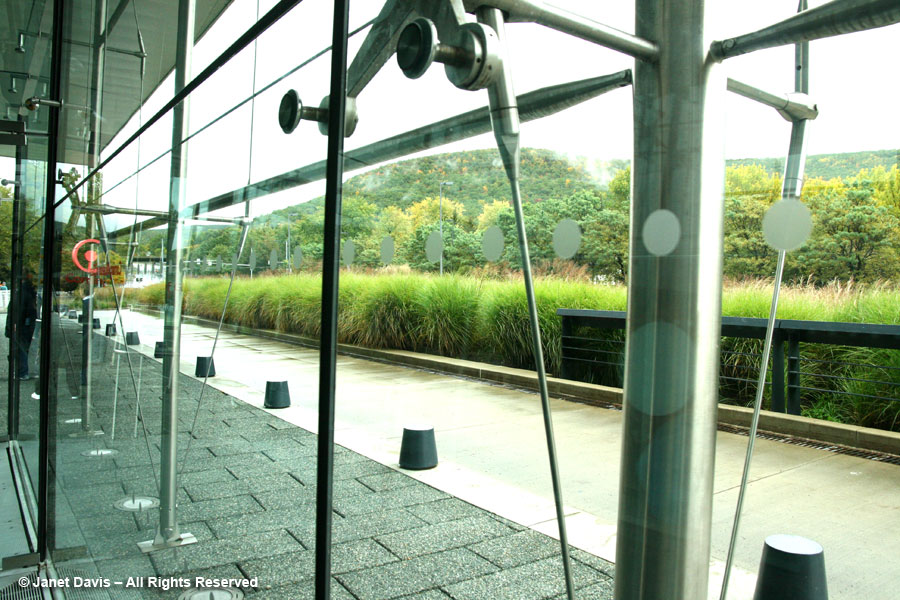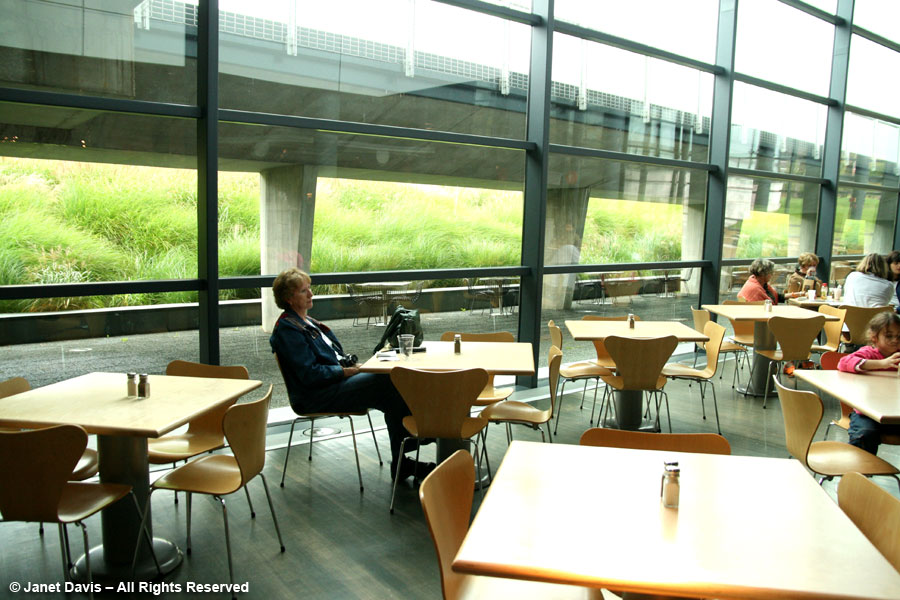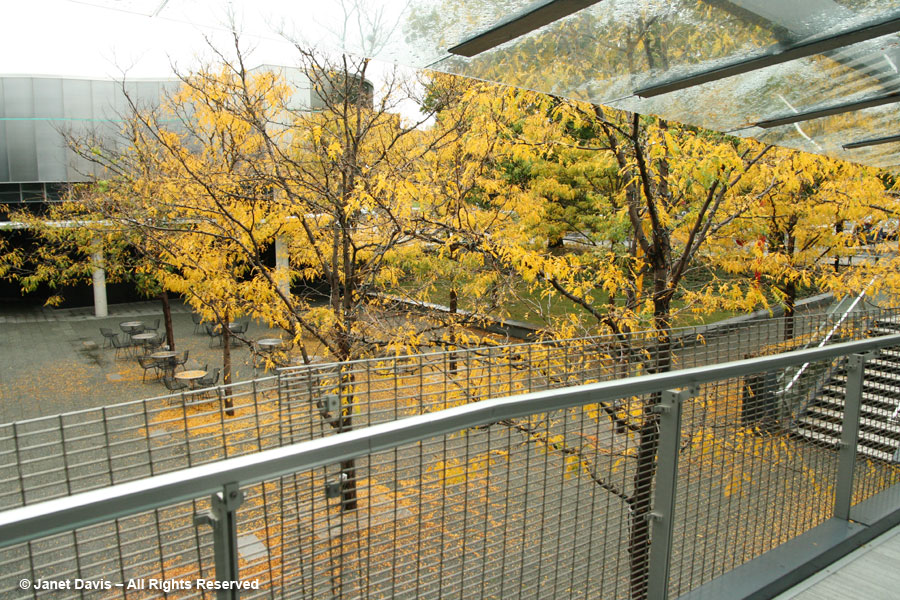A few years ago, on this last, Indian-summerish week of September, I visited one of my very favourite buildings filled with some of my very favourite things, surrounded by some of my very favourite plants: big ornamental grasses, in all their swishing, early autumn glory.
Yes, I was in the Corning Museum of Glass (CMOG) in Corning, upstate New York, halfway between New York City and Niagara Falls. Pretty cool architectural curves, huh?
The grasses are gorgeous, forming a soft, fountain-like counterpoint to the hard edges of the modernist lines of both building and landscape elements, like the black steel fence along the entrance driveway.
And my very favourite ‘things’ in the building? Well, of course, those would be glass things. Sculptural glass, like this hanging Fern Green Tower (2000) by Dale Chihuly, a gift from the artist and the signature piece in the museum’s glass-walled lobby…
Here’s a closer look at Fern Green Tower.
Because of my love for all things green, it was natural that I paid special attention to that verdant hue in some of the museum’s collected works. So, naturally, I was drawn to this emerald-green chandelier crafted by F. & C. Osler of Birmingham, England around 1870.
But also to this simple green bird by Finnish artist Oiva Toikka, and titled Kiikkuri (c 1974).
Did you know that glass can come from trees? As a garden writer, I was fascinated by these waldglas goblets. In English, the word translates as “forest glass”, and in fact one of the ingredients in this glass recipe used by rural German glassblowers in the Middle Ages was ash from trees and ferns. I like to think the green colour actually arose from green leaves (even though, yes, I do know about chlorophyll), but it came instead from iron impurities in the sand used in the glass. Still, it does remind me of the forest…..
What about the green in this stunning mosaic bowl? It comes from the eastern Mediterranean and dates from the Late 2nd – 1st Century BC. According to the Metropolitan Museum in New York, “Multicolored canes of mosaic glass were created, then stretched to shrink the patterns and either cut across into small, circular pieces or lengthwise into strips. These were placed together to form a flat circle, heated until they fused, and the resulting disk was then sagged over or into a mold to give the object its shape.” Here’s a good blog post on mosaic bowls.
And there’s an entire gallery at the CMOG devoted to renowned glassmaker Louis Comfort Tiffany, who certainly loved his greens, including the leaves in the garden scene of this 1905 window for the Gothic Revial mansion Rochroane Castle, Irvington-on-Hudson, New York.
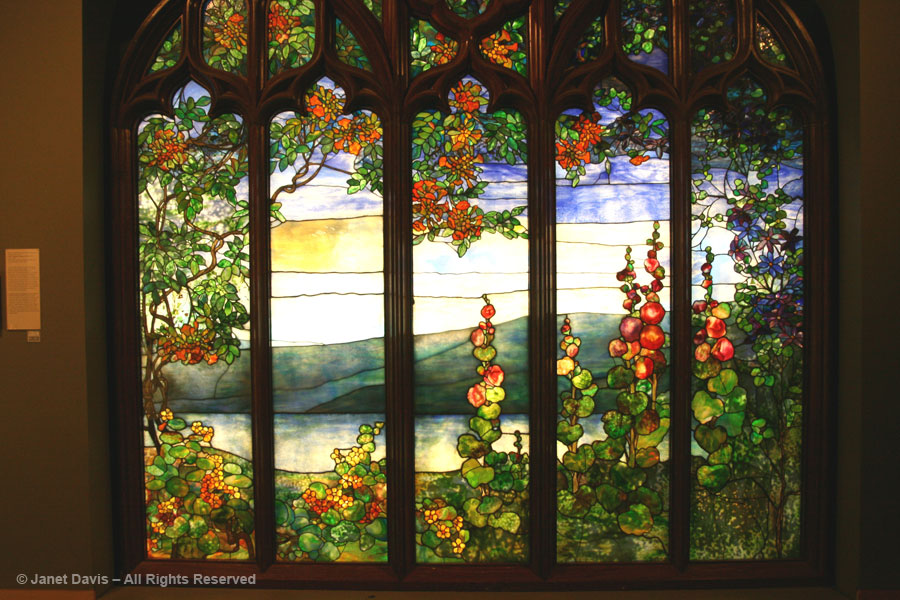
The gift shop is filled with thousands of delectable glass items, including bottles, wine glasses, and hanging ornaments and balls like these ones.
And my friends know how much I love glass balls, like these witch’s balls hanging in my living room window. I shot this photo the morning after our historic December 21, 2013 ice storm – that’s my ice-laden Japanese maple outside the window.
Apart from the galleries, the CMOG has a demonstration theatre with a furnace where you can learn about all the steps in the ancient art of glassblowing.
There’s even a studio where you can reserve a spot to blow your own glass ornament.
That’s me below in the protective goggles getting a lesson. (Why didn’t I make a green ornament? Ah, I remember. It was a very rare and distinctive rose glass.)
And of course there are glass walls everywhere at the museum, some looking out onto those grasses….
And others offering stunning views from the cafeteria.
At this time of year, green is slowly disappearing outdoors. Here, the green chlorophyll has gone from the locust trees in the museum’s courtyard, lending them their distinctive yellow fall finery.
This amazing museum is still expanding with a big new gallery area, thanks to a massive infusion of cash by glassmaker Corning, Inc. It’s definitely worth a return trip.

